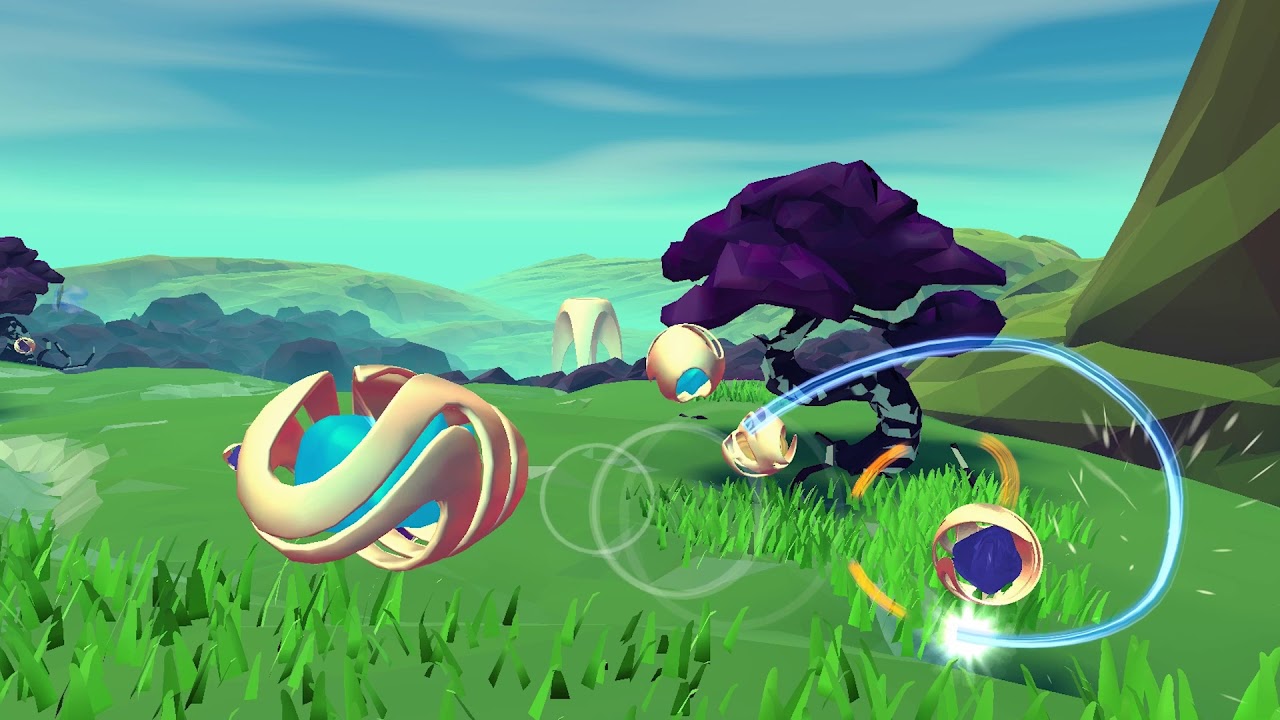I can’t imagine how many times The Chinese Room has heard, “Hey, you should do a VR game!” over the past five or so years. Having helped pioneer the ‘walking simulator’ genre with narrative-driven, mechanic-free games like Dear Esther and Everybody’s Gone To The Rapture, the studio seems like a perfect fit to work in VR. It’s a medium that demands the kind of attention this team pays to its environmental design and storytelling. Surely they could make the ultimate immersive walking simulator?
So Let Us Melt is quite different from any other Chinese Room game. Though still very much a story-based experience, its delivery is more direct, favoring controlled, on-rails, deliberately paced narration over open exploration with note-finding and audio drops; quite an ironic change considering the new freedoms afforded by VR. It’s The Chinese Room by way of childhood storytime, as if the developer has stripped back its traditional mechanics and condensed them into something much more digestible so that audiences beyond gamers might appreciate it too.
I mean that quite literally; the piece’s story is told to a group of children gathered around a campfire. It’s a creationist tale that follows Custodian 98, a world-building machine made by humans that joins other machines in the 10 million year journey to make Kenopsia, a new planet. In each of the 12 chapters you’ll see the world from 98’s perspective, occasionally helping to build it by pointing the Daydream controller at certain targets, at which point 98 will sing in an orchestral tone, injecting life into the world around you. Occasionally you’ll trace patterns as part of this process too.
Chinese Room’s world-building is in top form here, and just as efficient as the machines that make Kenopsia itself. The 60-minute tour of the planet is filled with wonder and intrigue, wistfully winding round idyllic locations. At times, So Let Us Melt feels like a greatest hits of VR traveling, taking you from dense jungles to deep oceans and beyond. The piece’s polygonal art style makes for some beautiful environments, though there are also times you wish you could see the world in more detail. The music, composed by Jessica Curry, carries an existentialism to it that suggests a grand significance to the events that unfold, quite fitting considering you’re watching an entire world being built before your eyes.

Despite slight interactive elements, it really is better to think of So Let Us Melt as a VR film in the style of something like Ctrl rather than a game. Each five minute chapter mainly consists of you looking around the environment and admiring the work The Chinese Room has put into it rather than hunting for plot points. While I was at first disappointed to learn that I wouldn’t be experiencing one of the developer’s more traditional games in VR, there’s something to be said for sitting back and letting them take you on this journey.
Certainly, the game owes a debt to Ustwo’s Lands End and other early precursors to VR storytelling. In fact, at times, the piece feels a little too much like a retread of those experiences, hitting the same notes of awe and wonder with diminishing returns. Crucially, though, it separates itself with a few new layers.
Companionship is one of them. 98 is joined by a drone on his journey. He’s essentially the machine’s trusty pet, eager to meet others and all too ready to lend a helping hand. This lively presence throughout the story injects a strange sense of familiarity, almost as if you were taking your dog for a walk and taking joy from the excitement it feels for the world around you.The story also eventually serves to separate So Let Us Melt from the pack. Its themes play on the very idea of world building that VR promises so much of. While the emotional highs might recall other VR experiences, it’s the lows that are really the most memorable, gripping you at key moments and exploring tragedy on an enormous scale. It’s in this evolution beyond the whimsical where the piece really makes its mark, though obviously I don’t want to dive too far into spoiler territory there.

So Let Us Melt is not the VR debut I was expecting from The Chinese Room, but that isn’t necessarily a bad thing. While I’d have loved to see a more open, explorative adventure, the developer instead capitalizes on other areas that VR enhances, like companionship and creation. It tells a touching story that at times melted (appropriate, considering the game’s title) my heart and took me on a tour of some wonderful VR environments. You can’t ask for much more than that.
So Let Us Melt is available now on the Google Play Store for $6.99. Read our Content Review Guidelines for more information on how we arrived at this score.



Leave a comment
All comments are moderated before being published.
This site is protected by hCaptcha and the hCaptcha Privacy Policy and Terms of Service apply.